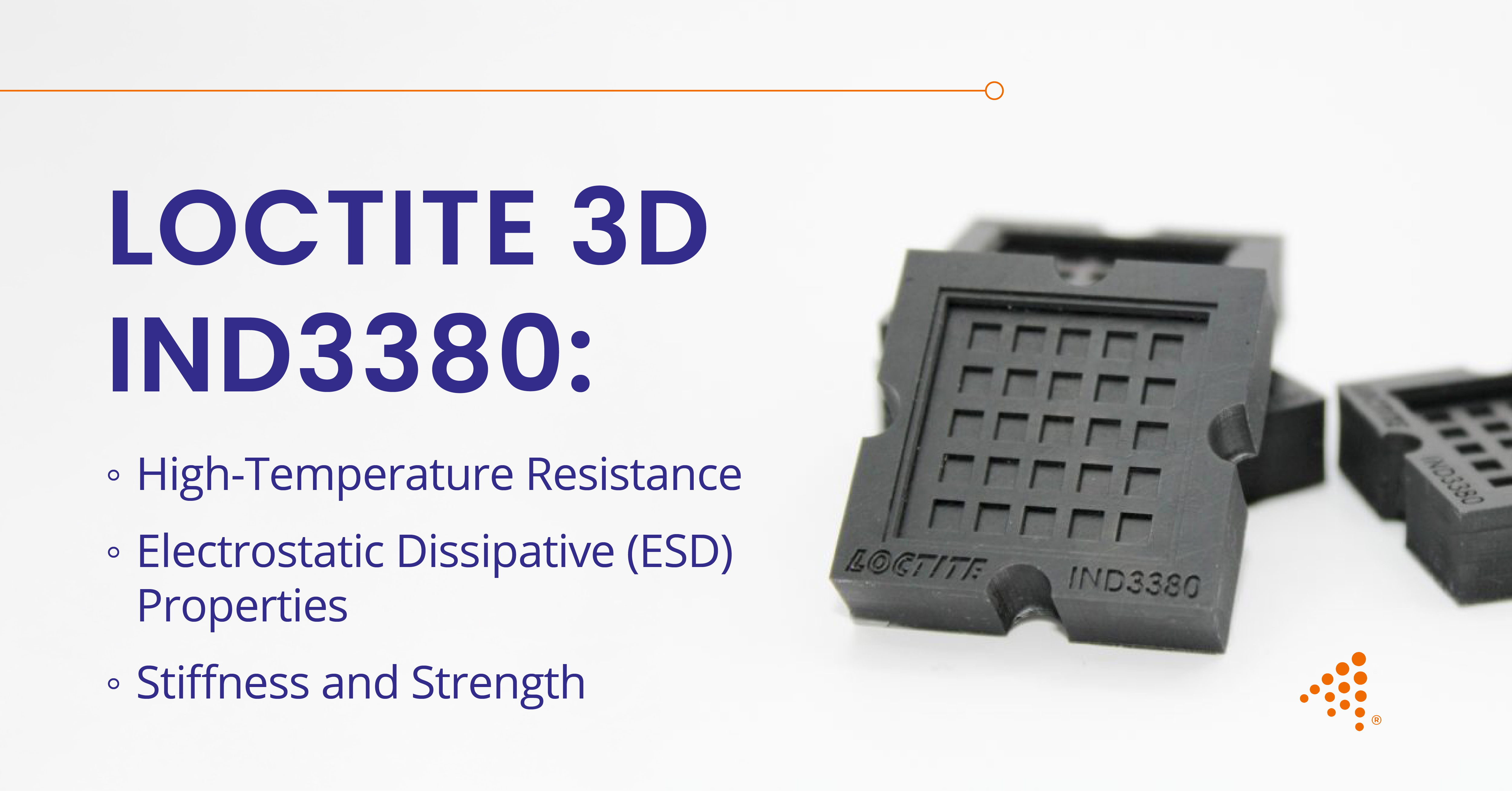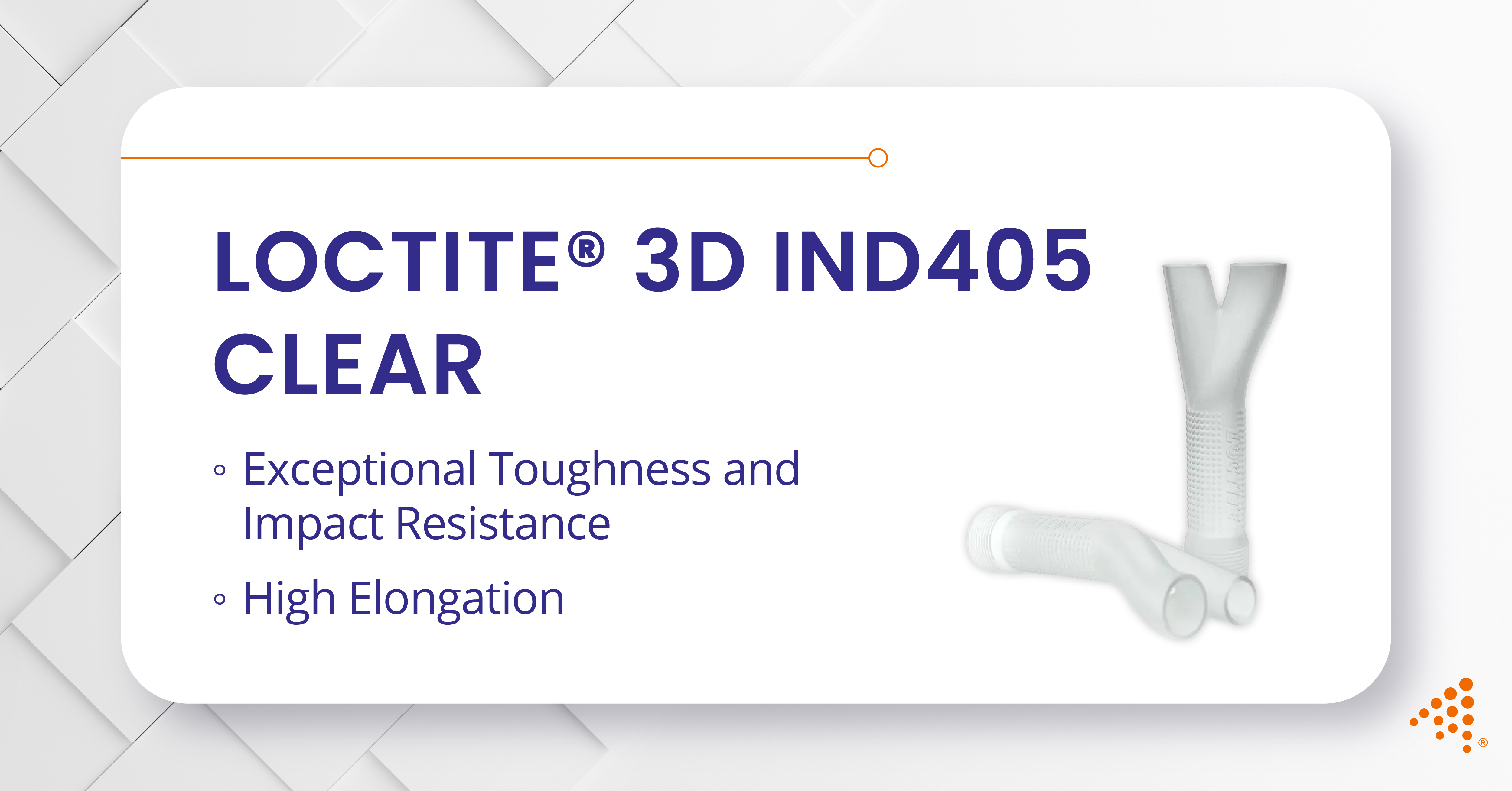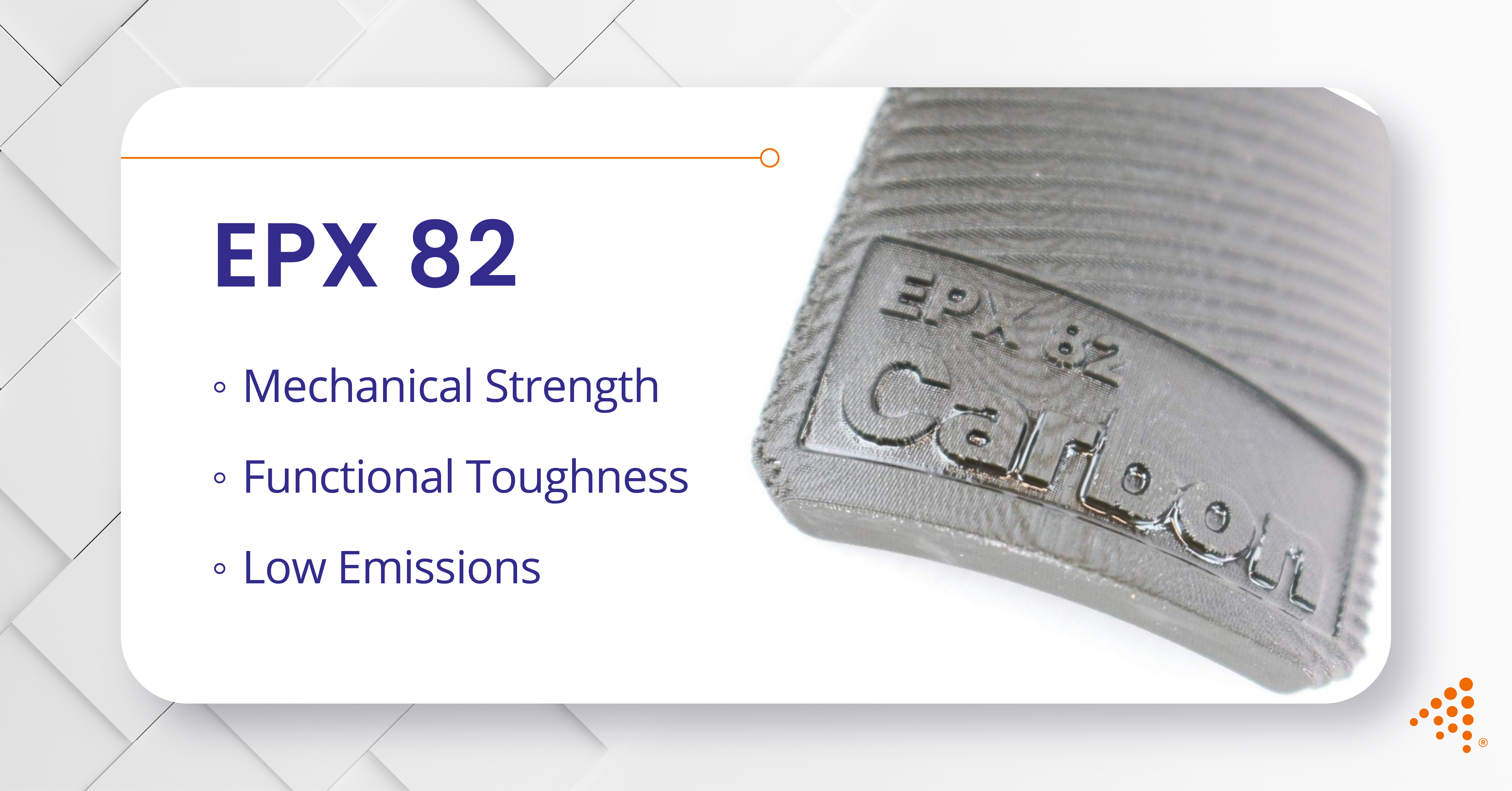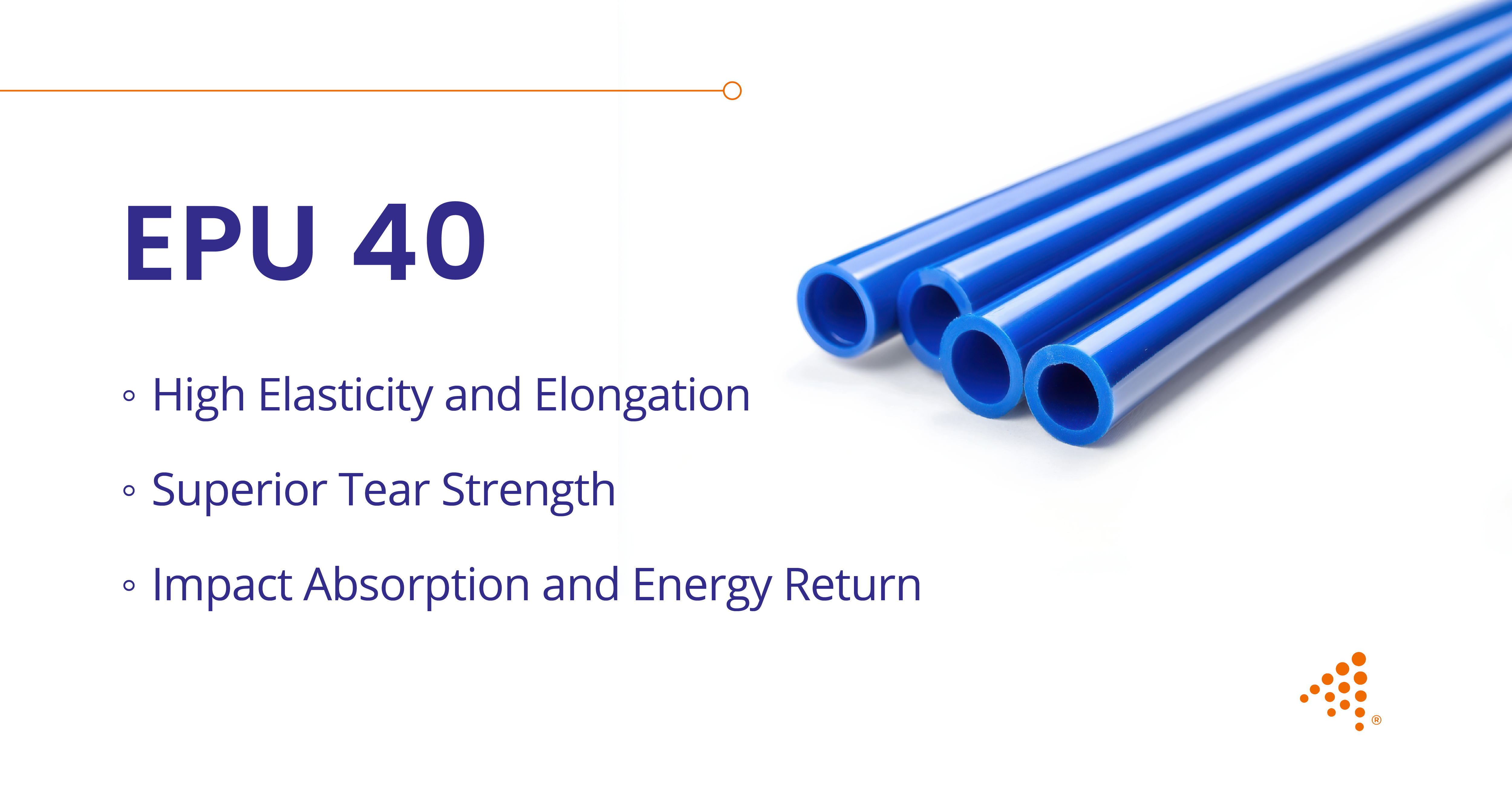LOCTITE® IND405 Clear: Durable Clear 3D Resin
LOCTITE® 3D IND405 Clear is a high-performance, semi-rigid photopolymer resin known for its exceptional toughness, high impact resistance, and...
3 min read
Nick Erickson : Nov 21, 2025 11:32:00 AM

Loctite 3D IND3380 is a specialized photopolymer resin that offers a unique combination of properties, making it a valuable material for specific industrial and manufacturing contexts. Developed by Henkel and compatible with Carbon Digital Light Synthesis™ (DLS™) technology, this material is engineered to deliver high-temperature resistance, electrostatic dissipative (ESD) properties, and considerable stiffness. Its formulation is designed to produce parts with a smooth surface finish and high dimensional accuracy, positioning it as a key material for creating detailed and functional components for demanding environments, including those in electronics manufacturing and aerospace.
Loctite IND3380 is defined by a set of distinct performance attributes that make it suitable for specialized production parts.
One of the most notable features of IND3380 is its ability to perform under thermal stress. The material boasts a high heat deflection temperature (HDT) of over 374°F (190°C), which allows it to maintain its structural integrity and mechanical properties in high-heat environments. This makes it a reliable choice for components that will be exposed to significant temperatures during their operational life or manufacturing processes, such as wave soldering and conformal coating.
Designed with ESD safety in mind, IND3380 protects sensitive electronics by dissipating static charges. It is perfect for producing medical device prototypes, manufacturing aids, jigs, and ESD-safe housings for custom manufacturing services.
IND3380 is a rigid material, providing the strength and stiffness needed for high-load and high-stress scenarios. This robustness allows for the creation of precise tooling solutions and end-use parts that can withstand mechanical challenges without deforming. While it is a stiff material, this often means a trade-off in terms of brittleness when compared to more ductile polymers.
The material exhibits good resistance to a variety of chemicals. This attribute is important for parts that may come into contact with industrial solvents, cleaners, or other aggressive substances during their lifecycle, contributing to their longevity and reliability in harsh operational settings.
Read More About Injection Molding Defects: Flash – What It Is and How to Get Rid of It
The unique combination of features found in Loctite IND3380 lends itself to a range of specific industrial uses where performance is critical.
Given its primary characteristic of electrostatic dissipation, IND3380 is frequently used to produce custom jigs, fixtures, and connectors for electronics manufacturing. These tools hold sensitive components during assembly and testing, and the material's ability to prevent static discharge is paramount. Its high-temperature resistance is also beneficial for tools that undergo heating and cooling cycles.
The material is also well-suited for creating protective housings and enclosures for electronic devices. Its rigidity and dimensional stability provide mechanical protection, while the ESD properties safeguard the internal components. The smooth, high-quality surface finish achievable with the Carbon DLS process means these parts can have an aesthetic comparable to those made with traditional injection molding.
Beyond electronics, any scenario that requires a stiff material capable of withstanding high temperatures is a potential fit for IND3380. This includes components for automotive, industrial, and aerospace sectors where parts are exposed to heat and require reliable mechanical performance.
When evaluating Loctite IND3380 against conventional thermoplastics, its closest analog is Polyetherketoneketone (PEKK). Both IND3380 and PEKK are considered high-performance polymers known for their exceptional thermal stability and high strength. PEKK is often chosen in the medical injection molding and aerospace industries for its ability to endure extreme temperatures and harsh chemicals while maintaining its mechanical properties. Similarly, IND3380 provides a high heat deflection temperature and rigidity, making it a viable additive manufacturing alternative for producing parts that have traditionally required high-performance thermoplastics like PEKK. While the manufacturing process differs, the resulting components share key attributes of strength and thermal resilience, allowing for the production of complex geometries that might be difficult or costly to achieve with traditional molding techniques.
While a highly capable material, there are certain limitations to consider when selecting Loctite IND3380 for a project.
As is common with many high-temperature, high-stiffness resins, IND3380 can be more brittle than other polymers. It is not ideal for parts that require high impact resistance or will be subjected to drops or sudden shocks. In such cases, a tougher material would be a more appropriate choice.
The specific combination of ESD properties and high-temperature resistance makes IND3380 a solution for a narrower set of problems. If these specific characteristics are not required, other resins may offer a more cost-effective or mechanically suitable alternative for general-purpose prototyping or parts production.
Choosing Loctite IND3380 is a strategic decision for projects where its unique strengths align with the part's functional requirements.
For the manufacturing of electronic components, IND3380 provides a reliable solution. Its combination of ESD protection, high-temperature stability, and stiffness is critical for producing dependable tooling and final-use parts that protect sensitive electronics through various production stages.
Leveraging IND3380 with the Carbon DLS process enables the creation of intricate parts that would be challenging or impossible to produce with traditional manufacturing methods without sacrificing the high-temperature and mechanical performance expected of an advanced polymer. This capability is especially valuable for industries like aerospace and for specialized medical injection molding tooling that demand both complexity and durability.
The material is capable of producing parts with a smooth, high-quality surface finish that is often suitable for end-use products. This reduces the need for extensive post-processing and allows for the creation of aesthetically pleasing yet highly functional components.
Contact Aprios to learn more about our additive manufacturing capabilities. You can also view our Material Selection tool.

LOCTITE® 3D IND405 Clear is a high-performance, semi-rigid photopolymer resin known for its exceptional toughness, high impact resistance, and...

Epoxy 82 (EPX 82) is a high-performance, rigid photopolymer resin developed by Carbon for its Digital Light Synthesis™ (DLS™) technology. This...

Elastomeric Polyurethane (EPU 40) is a high-performance additive manufacturing material developed by Carbon, renowned for its unique combination of...